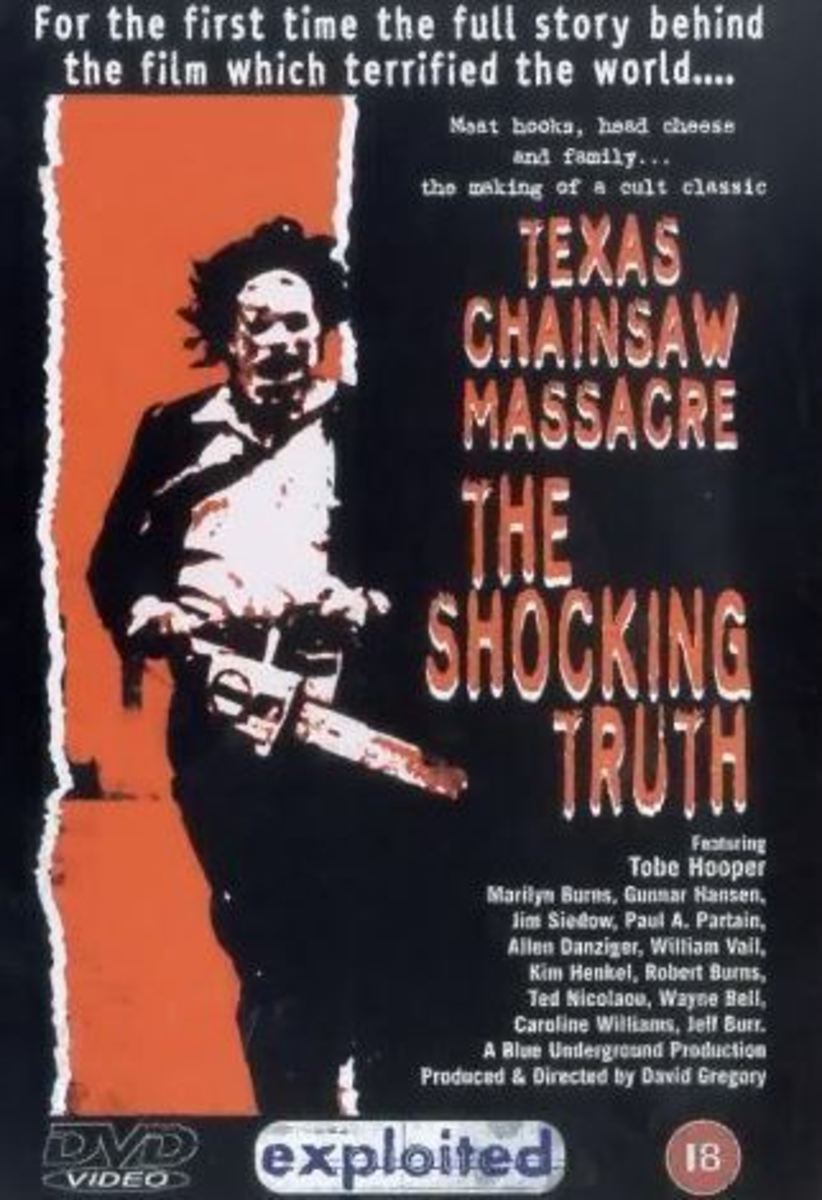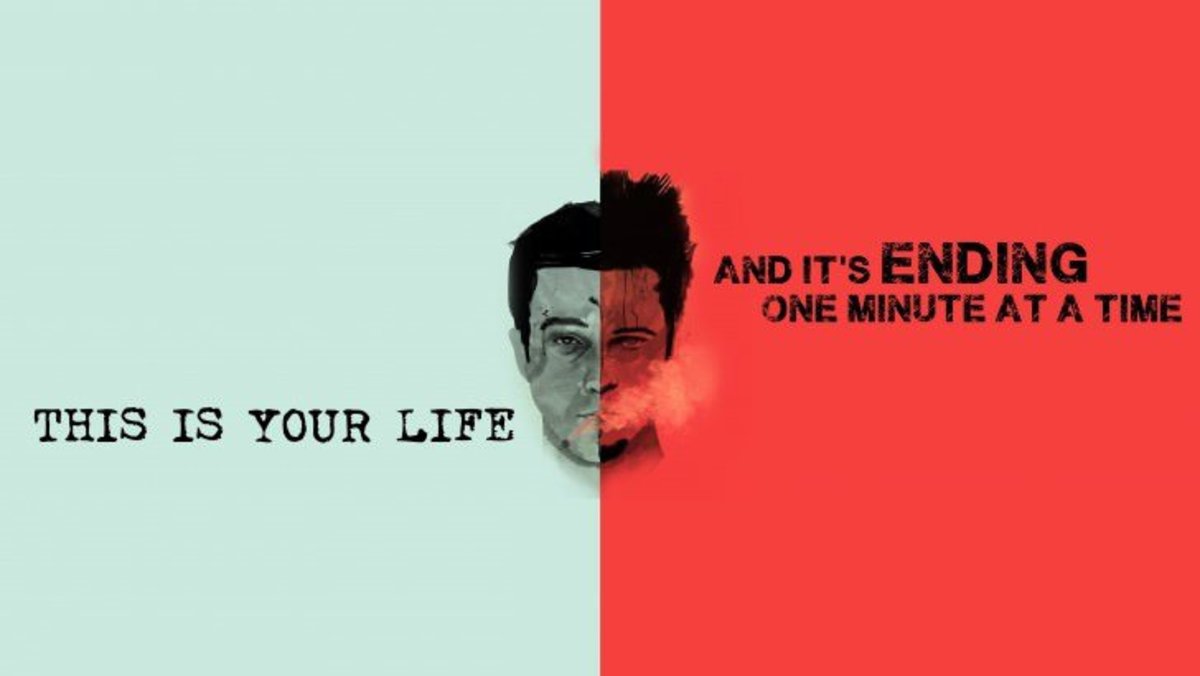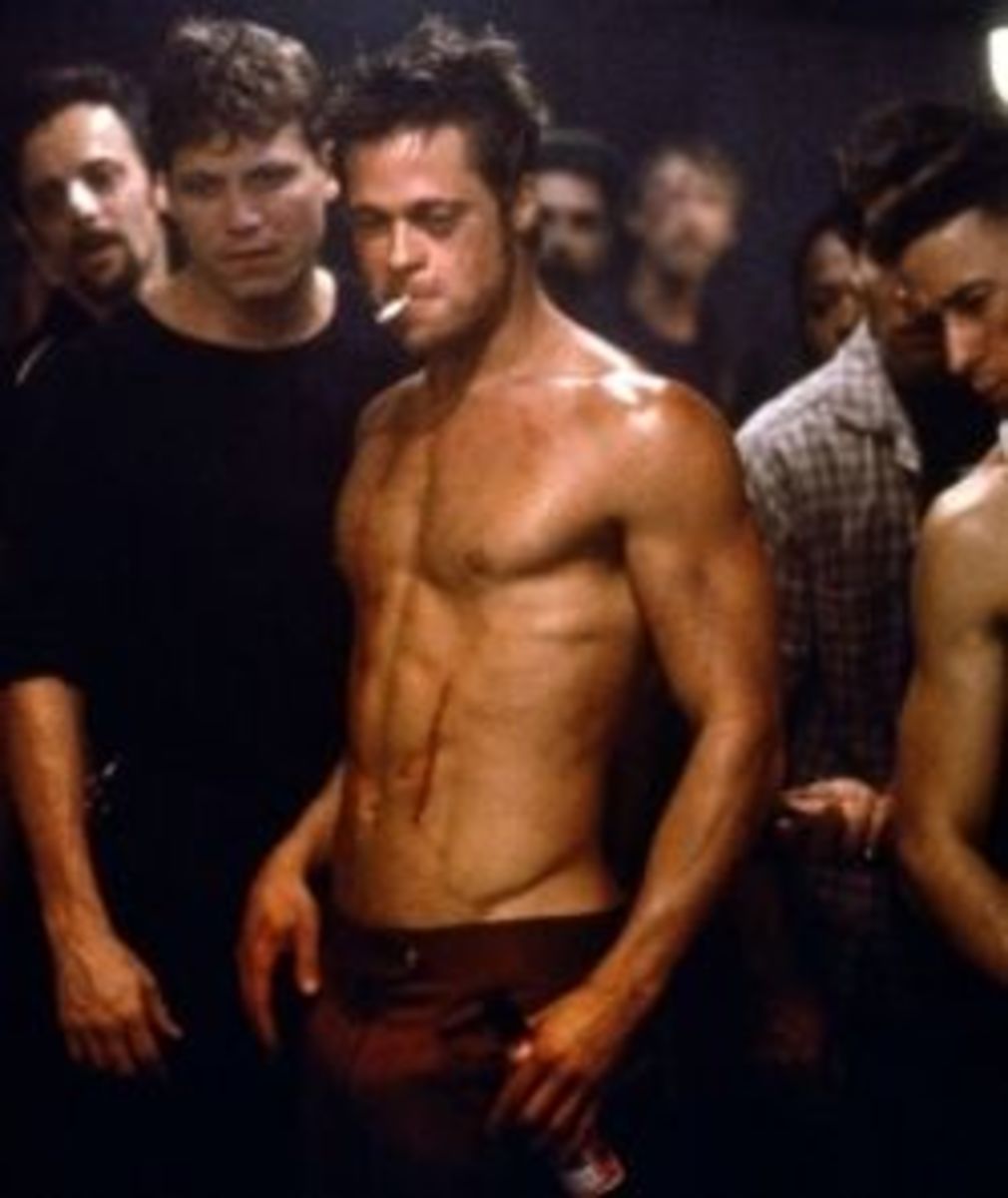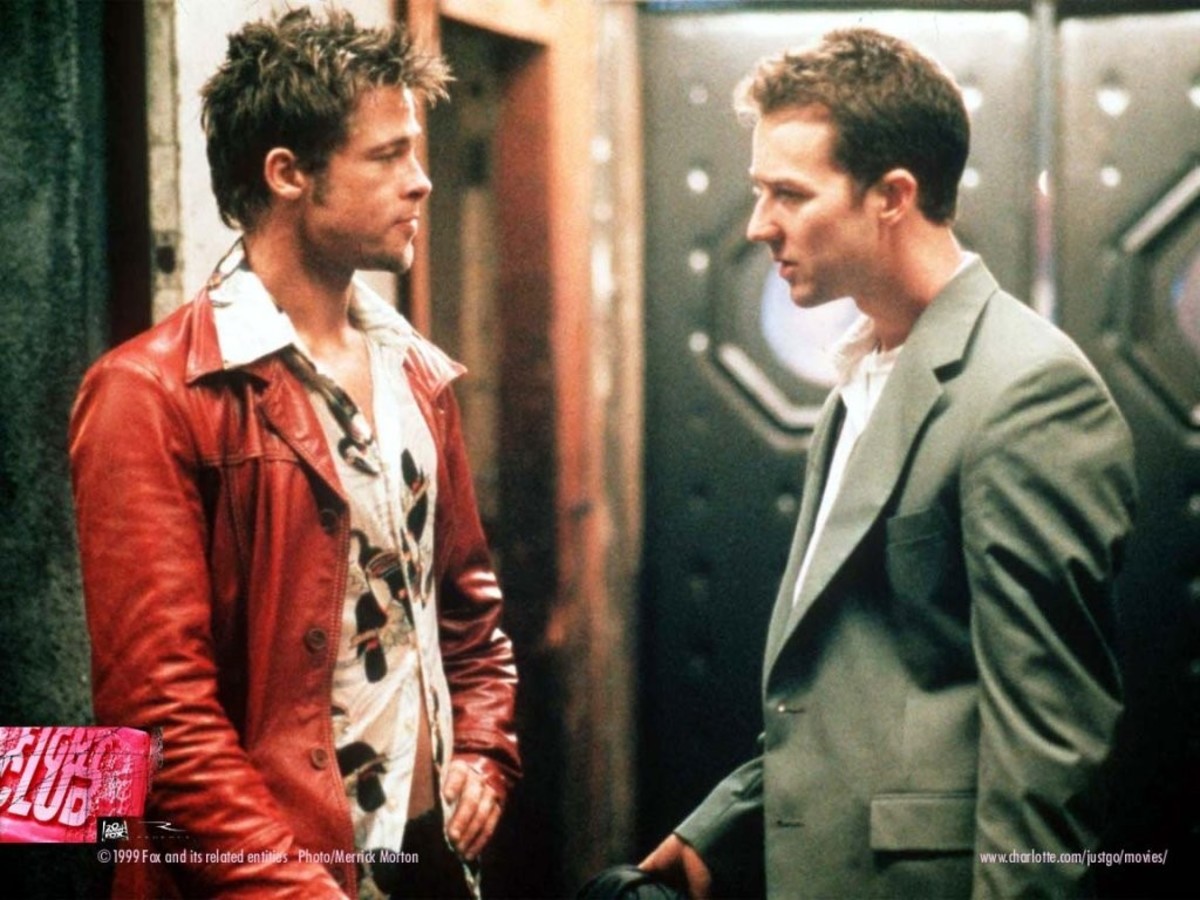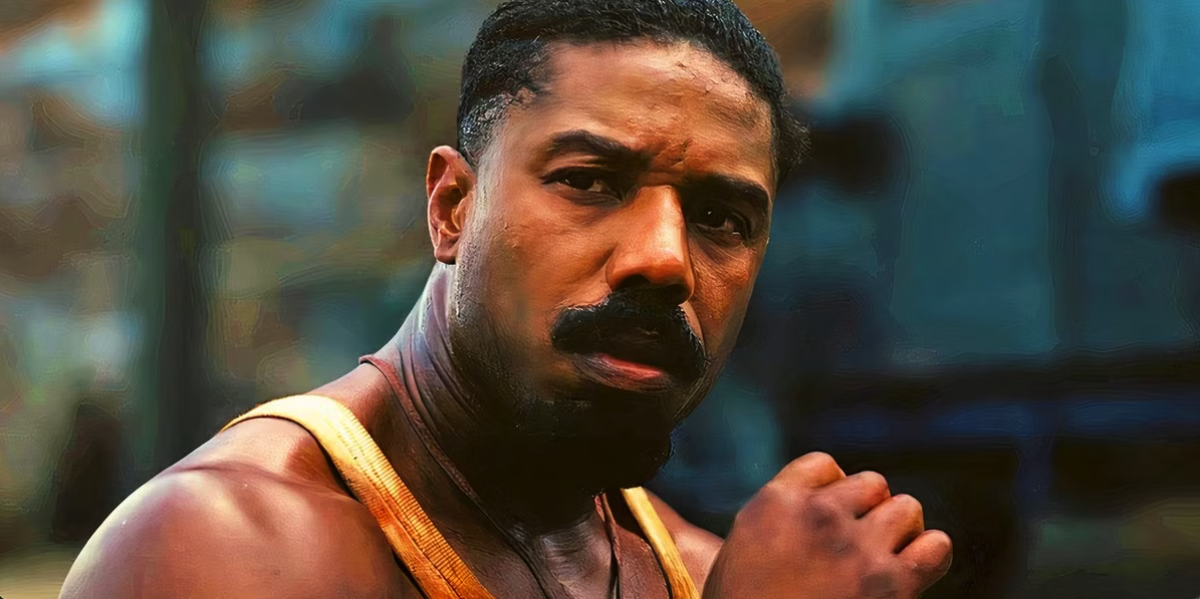Film and Literary Criticism: What Fight Club's Tyler Durden Has to say About Hollywood
In a post-film release introduction to the novel Fight Club, author, Chuck Palahniuk, discusses the resonance Tyler Durden has found in modern American society. The list of cultural references to and about Fight Club made by the author in the new introduction becomes staggering as he makes his point. This brings to question how the work found such resonance in society and what does it say that the work even does find resonance in our society. Obviously, on one level, the culture’s saturation with Fight Club and Tyler Durden comes from the success of the film. This fact may seem obvious, and it is obvious. Simply count the sheer number of people who watched the film version over the first few weekends of its release alone. You don’t need to go any further to crush book sales for the novel.
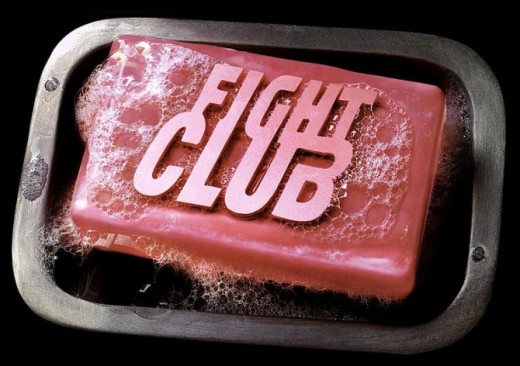
When Palahniuk wrote his new introduction to the novel, he was in a unique place in history, as far as I can tell. This uniqueness can be better understood by looking at a section from the prologue:
“…I tell him: Hey…
From the dark, the cowboy says, ‘Hey, what?’
I say, I wrote that book….
From the dark, he says, ‘Wrote what?’
Fight Club I tell him.
And there, the cowboy takes a step back up…He tilts his hat back for a better look and pushes his eyes at me, blinking fast…he says:
‘There was a book?’” (xii)
One Nation, Under Tyler
Now, given the nature of the subject matter of the film, a surprising parallel becomes apparent between first, the narrator and Durden, and second, the novel version of Fight Club and the movie. In Fight Club, the narrator’s name is never mentioned; however there is no one who seemingly does not know Tyler Durden. In Palahniuk’s example of real life, the book is unknown, while there is seemingly no one who has not seen the movie.
This observation tells more about the significance of literature to our time than it does about a comparison of merits between the film version and the novel version of Fight Club. However, post-modern concern for the relationship of film to novel is evolving. The self-reflective nature of works of postmodern fiction requires such an adaptation in criticism. What I mean by this is that the very nature of the task of criticism comes into question in such a unique historical situation, as does the relationship between the art forms. The parallel of characters to film and novel discussed in the previous paragraph reveals, with chilling accuracy, the place of literature in a film-saturated society.
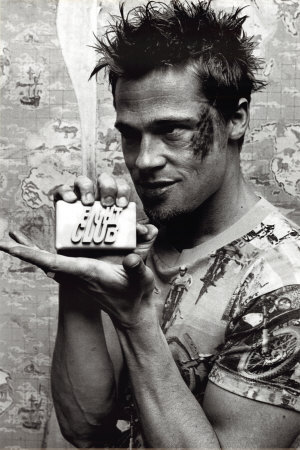
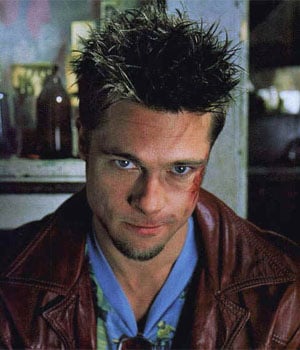
So, let our critical task become postmodern as these words are typed. Let’s ask the question: how would an understanding of the narrator’s relationship to Tyler Durden in the work Fight Club enhance our own understanding of literature’s relationship to film. That is the question postmodern literature must square in the face, though, like fight club, the first rule of this battle between literature and film, is that you don’t talk about the battle between literature and film.
To pursue the question, there are a few options present to literature at this point. These options are not unlike the options presented to the narrator. The first is to accept its place in society and concern itself with furnishing out its small corner, or apartment, with the academic, literarily accepted, and stylish knick-knacks. The character notably does this, before blowing his apartment up. The second option is for literature to let itself be transformed into this larger than life version of itself that cannot be ignored and that will most likely choke it out even though it isn’t at all the thing literature intended when he first agreed to a film deal.

What Would Tyler Durden Say?
It is not small coincidence that Tyler Durden relationship to the narrator is helpful in explaining why film versions of books so often miss the mark despite their inflated budgets, spectacles and aspirations. These films really are Frankenstein versions of the books they represent. No author is spared. Kurt Vonnegut has been butchered (Breakfast of Champions). So has Michael Crichton (Sphere, Congo), Homer (Troy), and Douglas Adams (The Hitchhiker’s Guide to the Galaxy), to name just a few. If this is true, and it is, then Tyler Durden is not done telling us about Hollywood.
What is Tylder Durden’s attitude towards the narrator? Enigmatic? Problematic? Co-dependent? Manipulative? I think the underlying term evolving from this “word cloud” is parasitic. Personifying film, ever the aim of postmodern criticism it is starting to look like, this would explain a few things about Hollywood. If the thesis is correct that films are parasitic to literature in nature, it stands to reason they would be parasitic on the ideas in the books. This means they would be just as parasitic to other ideas, like other films, television shows, board games, kid’s shows from the 80s and survival horror video games. The evidence speaks for itself.
How Far Can Tyler Take Us...
This examination is worth nothing if it doesn’t have a prognosis or treatment along with the diagnosis of the current malaise in Hollywood. Tyler Durden, once again, has an idea. Within the film, Tyler was certainly not going to content himself with the narrator, the way Hollywood doesn’t content itself with sucking the life out of books alone. No, Tyler has one agenda, the complete disruption of the status quo. What does this mean for Hollywood? Well Tyler Durden seems to say that the way Hollywood goes about business undermines the very viability of the business it is going about.
To take the analogy beyond this is unnecessary. The post-modern point is made: Hollywood will eat itself alive because eventually, it will run out of anything else good to eat. At that point, all we’ll see is sequel after sequel after sequel. If that ever happens, the advice Maynord James Keenan gives the entire LA area would be ironically appropriate. And, since this is post-modern criticism, there’s no rules against quoting lyrics yet (edited for language):
“Fret for your figure
and
Fret for your latte and
Fret for your lawsuit and
Fret for your hairpiece and
Fret for your prozac and
Fret for your pilot and
Fret for your contract and
Fret for your car.
It's a bulls*** three-ring-circus sideshow of freaks here in this hopeless f**** hole we call LA. The only way to fix it is to flush it all away...." - Maynord James Keenan
The lyrics may seem harsh and angry, but when considering Tyler Durden, or Hollywood, for that matter, context is everything.
Other Hubs by Cdub77 on Film and Culture
- Films That Redefine Your Expectations: Richard Kelly's "The Southland Tales"
For most people the name Richard Kelly has no relation to film. Well, why should it? He's only now releasing his third film in October 2009. Having graduated with a degree in film from USC in 1997, Kelly... - Films and Cinema: The Return of the Son of Hollywood: The Sequel pt. IV
When I was a child and physically had to wait for about three years after finding out the true identity of Darth Vader for the final chapter, I couldn't stop thinking about what would happen next for the... - Television and Media Culture: Painful Advertising, or How Cable TV Broke My Eardrums
The recession has given American a lot more time to watch television. I have been no different, I am sad to say. But I have noticed that some things have changed since I last spent time in front of the... - Video Game Culture, An Online Dissertation pt. 1: Atari 2600, Nintendo Entertainment System, and the
Somewhere between pop culture and computer software there lies an intriguing industry of multimedia entertainment that wholly did not exist thirty years ago. Video games are not only the fastest growing of... - Foreign Film Review Spotlight: Il Postino, A Film about the Power of Poetry
Though this film came out fifteen years ago, it has been one of my favorite ever since. I decided to write about it because I found the character of Mario to continue to be inspiring to me even years...





![Fight Club (10th Anniversary Edition) [Blu-ray]](https://m.media-amazon.com/images/I/51bxyZU-MlL._SL160_.jpg)
